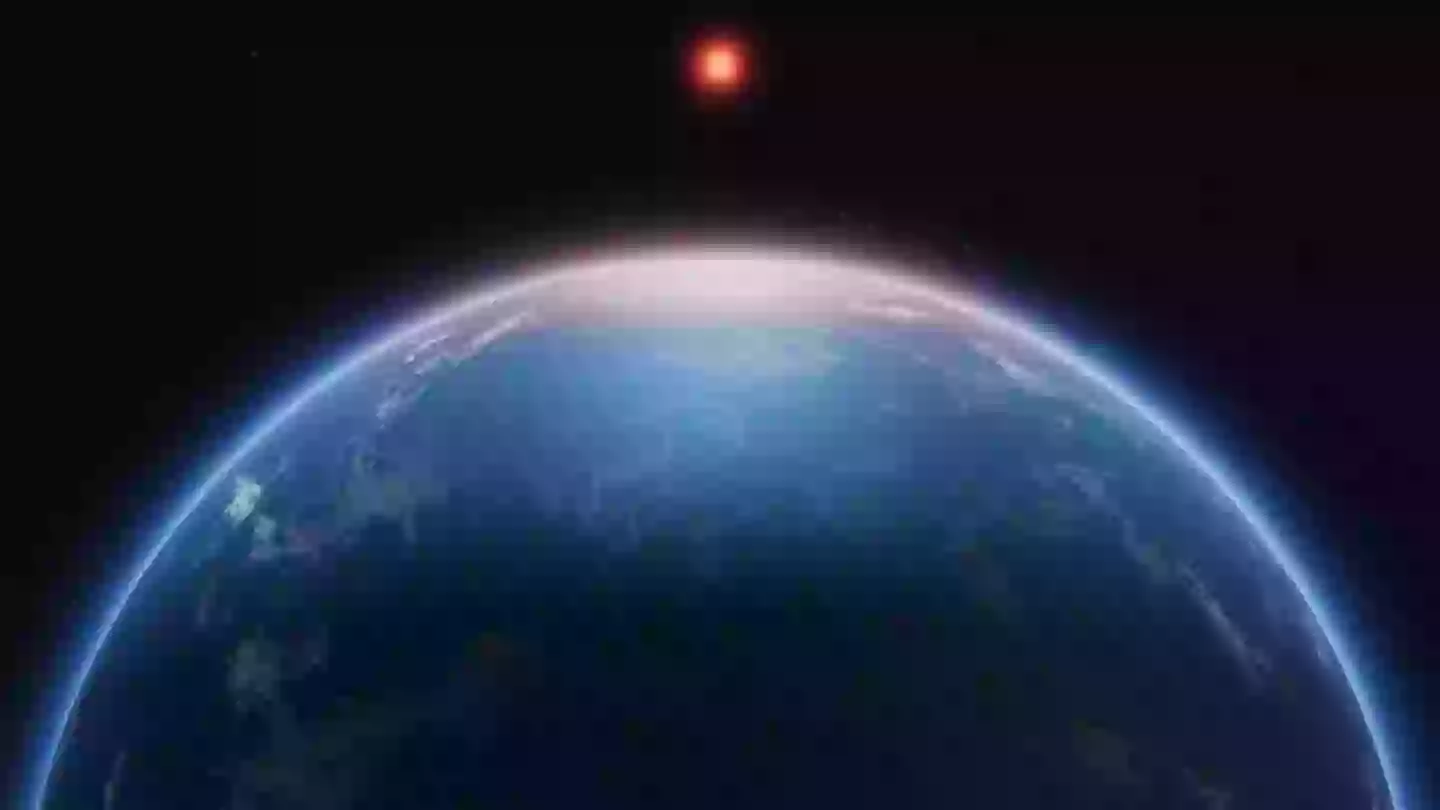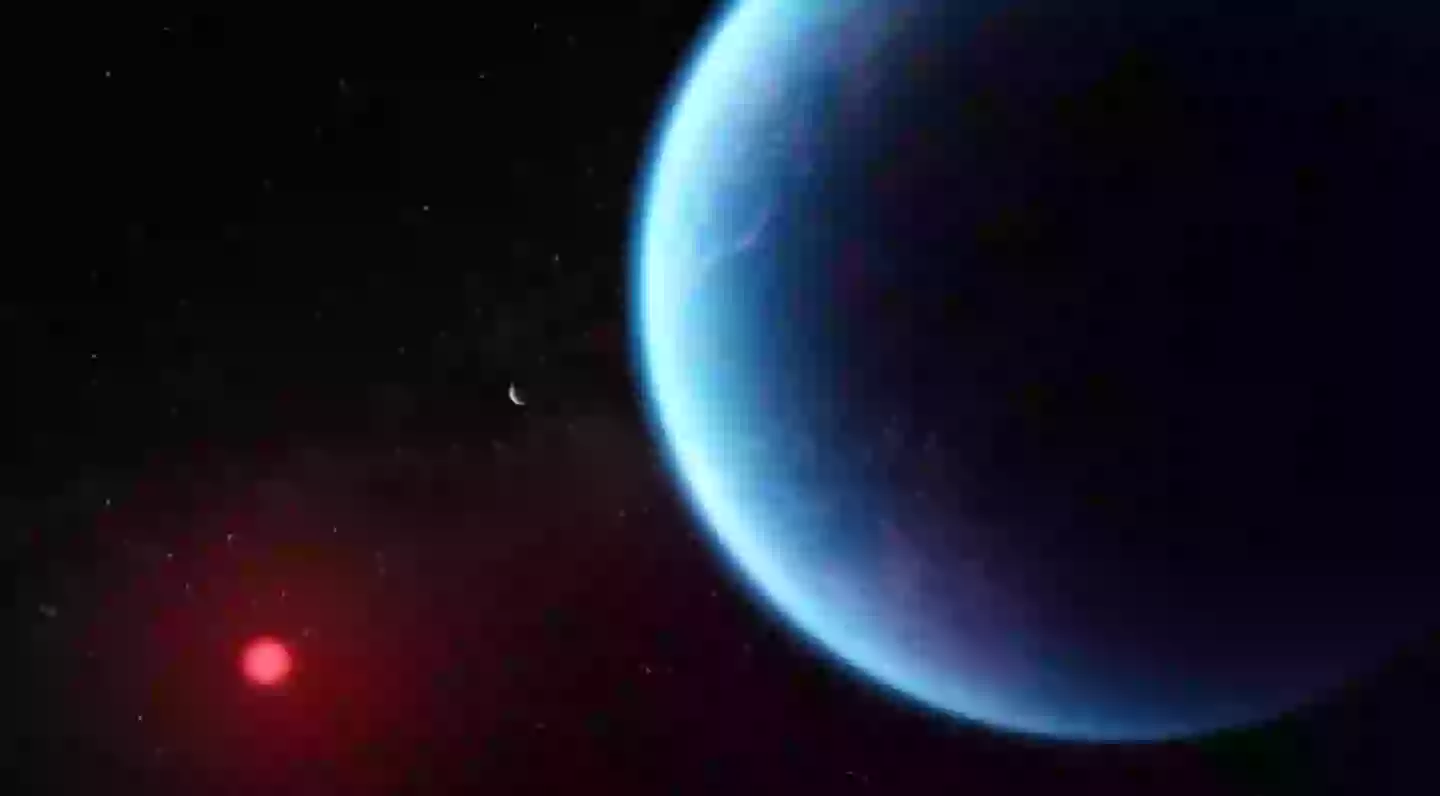
For centuries, astronomers have long wondered whether alien life has been looming in our universe without our knowledge.
But now, it looks like a breakthrough has been made in the space realm, as scientists at the University of Cambridge, led by Dr Nikku Madhusudhan, have announced that the discovery of K2-18b, a distant planet that is orbiting a red dwarf star 124 light-years away.
Part of the constellation Leo, the planet was first discovered by NASA's Kepler Space Telescope in 2015, and it is said to be 2.6 times larger than Earth.
Advert
On this beautifully named planet, astronomers have said that they're '99.7 percent' certain that biological life is present, based on data collected by the James Webb Space Telescope (JWST).
Water vapour was found in the planet's atmosphere, meaning it is now the first habitable-zone exoplanet where water was found.
An analysis of K2-18b's atmosphere was revealed to contain large amounts of biosignatures in dimethyl sulfide (DMS) and dimethyl disulphide (DMDS), which are found on Earth at about one part per billion, but these are actually found on K2-18b in 10 parts per million.
DMS is produced by microscopic 'phytoplankton' in our world's oceans, with the organisms being incredibly ancient, dating back to about 3.5 billion years ago, presenting another promising sign of life on the faraway planet.
Advert
While many believe that the Hycean world is a positive discovery for humanity, some think that it could spell trouble, with British physicist and science writer Mark Buchanan claiming that alien contact may result in 'the end of all life on Earth'.
Speaking to MailOnline, he said: "I personally think it would be a really bad idea to just blindly make contact, without first trying to learn more about the other civilisation."

He went on to speak about the ongoing debate between scientists about sending messages to other civilisations, as they may not be as cooperative and more powerful than we could imagine.
Buchanan made a comparison: "Historically on Earth, when different civilisations have come in contact, the result has often been the extinction or enslavement of the weaker group.
Advert
"But other people feel differently and argue that, maybe another civilisation could teach us things, such as how to manage our limited environment more effectively or could teach us new technology – so there are interesting ideas on both sides."
Scientists can send messages via radio or light signals, much like emails or texts, but the physicist said that the best out of the two is the latter, as it would travel much faster.
However, he did point towards the likelihood of life on the planet being 'microbial', 'not an intelligent civilisation'.

Professor Avi Loeb, a theoretical physicist at Harvard University, said that we should listen out for 'any technological signals', though admitted that communication would be tricky.
Advert
Speaking to the publication, he said: "This planet K2-18b is 124 light years away. If we send a communication signal towards it right now, the earliest time for us to receive a response at the speed of light is 248 years from now, in the year 2273."
Loeb said that he is 'not that patient' and would rather observe rather than wait to hear back in 2273.
He also claimed that aliens won't see us 'as a serious threat', and may even ignore any messages we send as they would view us as 'particularly intelligent' due to the geopolitics on Earth.
Well, time will tell and all that.
Topics: Aliens, James Webb Space Telescope, Science, Space, NASA